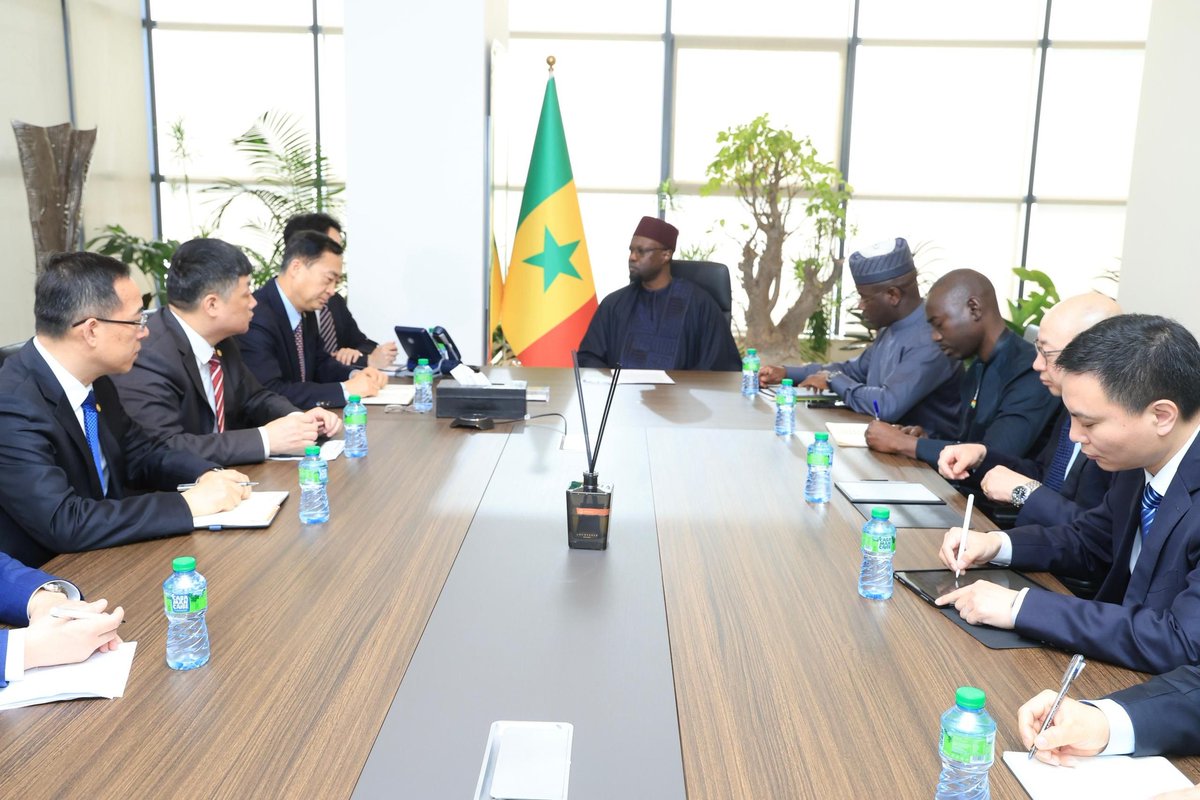
Senegalese Prime Minister Ousmane Sonko has concluded a high-level visit to China with the signing of several landmark cooperation agreements aimed at accelerating the West African nation’s development across energy, infrastructure, education, and technology sectors.
During his three-day visit to Beijing and Hangzhou from June 20 to 22, Sonko formalized a series of bilateral accords aligned with Senegal’s long-term “Plan Sénégal 2050” — an ambitious blueprint for structural transformation.
Key projects under the agreements include the construction of intercity road networks, development of renewable energy parks, and the creation of digital vocational training centres to boost youth employment and technical capacity.
These initiatives mark a significant step in addressing Senegal’s critical infrastructure and energy needs while also enhancing human capital.
For China — already a major player in Senegal’s infrastructure landscape — the visit further solidifies its role in driving Dakar’s long-term economic agenda.
Courting Private Investment in Hangzhou
At an economic forum in Hangzhou, Sonko issued a strong appeal to Chinese investors, portraying Senegal as a politically stable and reform-driven nation primed for investment.
“We are committed to creating a business climate that rewards initiative and guarantees security,” the Prime Minister stated.
Several memoranda of understanding were signed with Chinese private sector entities in agribusiness, renewable energy, and logistics.
These agreements are part of Senegal’s broader strategy to diversify its sources of development finance, reduce dependence on traditional donors, and negotiate partnerships that favour Senegalese interests.
The Chinese model — marked by rapid implementation and results-driven investments — has gained particular appeal as Senegal navigates increasing budgetary constraints.
Cultural and Sporting Diplomacy
Beyond economics, the trip also delivered diplomatic wins. Chinese officials extended an invitation to Senegal’s delegation for pre-training camps in preparation for the 2026 Youth Olympic Games (YOG), to be hosted in Dakar.
The gesture comes in response to past visa issues faced by Senegalese athletes and underlines Beijing’s commitment to logistical and technical support for the upcoming event.
This support expands the bilateral relationship into the cultural and sporting spheres, bolstering Senegal’s preparations for a global showcase that aims to inspire and empower its youth.
As the ink dries on these agreements, Dakar’s partnership with Beijing appears more robust than ever — anchored in mutual ambition and shared development goals.



